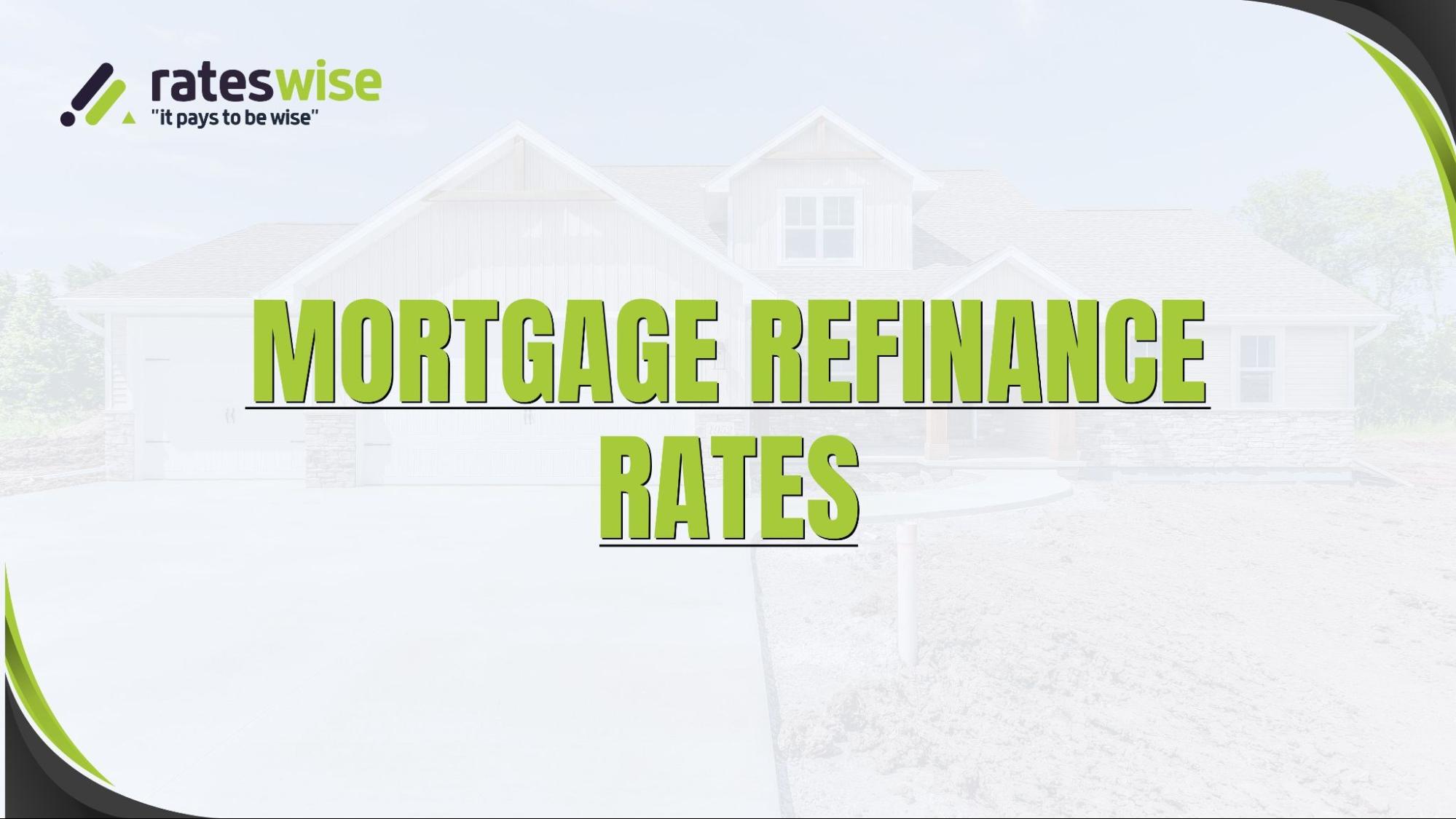Mortgage Refinance Rates in Canada (2025 Update)

Mortgage Refinance Rates in Canada (2025 Update)
When you take out a new mortgage to replace your current one, the interest rate you pay is determined by mortgage refinance rates. It's critical to comprehend current rates and eligibility requirements if you wish to:
- Cut back on your monthly installments
- Get your home equity
- Secure improved mortgage conditions.
How to benefit from Canadian mortgage refinance rates in 2025 is explained in this guide.
What Are Mortgage Refinance Rates?
The interest rates offered by lenders when you take out a new home loan to replace your existing one are known as mortgage refinance rates. Your overall borrowing cost is directly impacted by these rates.
- Reasons for Refinancing: Lower monthly installments
- Utilize the equity in your house.
- Reduce or lengthen the duration of your mortgage
- Change the rates from fixed to variable.
Read more about Fixed vs variable
Tip: To get the best deal, always compare rates offered by different lenders.
Mortgage Refinance Rate Update (2025)
Variable Mortgage Rates
The Bank of Canada lowered its overnight rate by 25 basis points as of January 30, 2025.
Variable refinance rates as low as 3% are currently available from some lenders.
Throughout 2025, variable rates might still be appealing to borrowers who can tolerate some rate fluctuation.
Fixed Mortgage Rates
As of March 5, 2025, fixed mortgage rates:
- Rates for 3-year fixed refinances: less than 3.9%
- Rates for 5-year fixed refinances: less than 4%
These declines are linked to declining bond yields, which enables lenders to provide fixed-rate products at lower prices.
How to Qualify for the Best Refinance Rates
In order to be eligible for the best refinance deals, lenders take into account:
- Aim for a credit score of at least 700.
- Debt service ratios: TDS less than 44%, GDS less than 39%
- Consistent income: Evidence of work and earnings
- Home equity: at least 20% is ideal.
- No missed mortgage payments
Borrowers with less-than-perfect credit are the focus of certain lenders.
Utilize Our Free Calculator for Mortgage Refinances
Find out how much you could save by refinancing:
Calculator for Mortgage Refinances
Example
For instance, you could save roughly $345 a month—more than $20,000 over five years—if you refinance a $450,000 mortgage from a 5.5% interest rate to a 3.9% one.
Other Mortgage Refinance Costs You Must Consider
Although reduced prices are fantastic, don't ignore one-time expenses like:
- penalties for not making your mortgage payments on time.
- Fees for an appraisal to confirm the value of your property
- The cost of legal counsel for managing the refinance paperwork
- fees for discharge when moving to a new lender
Always compare these expenses to the anticipated savings.
Why Refinance Rates Can Be Higher Than Purchase Rates
When comparing refinance rates to new purchase mortgages, lenders may offer somewhat higher rates because of:
- Increased risk due to longer amortization or larger balances
- Profit loss in the event of an early termination of a high-rate mortgage
Frequently Asked Questions
Q: Can I refinance with bad credit?
A: Perhaps, but rates could be higher. Refinancing with bad credit is a specialty of certain lenders.
Q: How long does the refinance process take?
A: Usually two to four weeks, depending on the appraisal, lender, and documents.
Q: What documents do I need to refinance?
A: The majority of lenders need identification, bank statements, property tax bills, and T4s or pay stubs.
Q: What’s the difference between fixed and variable refinance rates?
A: Variable rates change in accordance with the Bank of Canada's policy rate, while fixed rates remain constant.
Q: Are refinance rates always lower than my current mortgage?
A: Not all the time. Prior to refinancing, compare your existing terms and account for any penalties.
Final Thoughts
Refinancing in 2025 could be a wise choice if rates have decreased, your credit has improved, or you wish to access your home equity.
Examine the entire cost, estimate savings using our calculator, and consult a mortgage advisor if you have any questions.
Compare Refinance Rates Today
See how much you could save each month by using our Mortgage Refinance Calculator.
No need to register—just fast, real numbers.
About the Author
The Rateswise Editorial Team, a team of Canadian mortgage and finance professionals committed to assisting homeowners in making better refinance decisions, wrote this article.
Disclaimer: This information is provided here only for general informational purposes. For the most recent rates and eligibility requirements, always consult your financial adviser or lender.
About the Author
Written by the Rateswise Editorial Team
The Rateswise Editorial Team is a group of Canadian mortgage and finance professionals dedicated to helping homeowners make better refinance decisions. We continuously monitor the market, tracking Bank of Canada announcements and bond yield fluctuations to provide timely and accurate updates on mortgage refinance rates. Our mission is to translate complex financial data into clear, actionable advice, empowering you to secure the best possible terms for your new mortgage.
Related Articles
